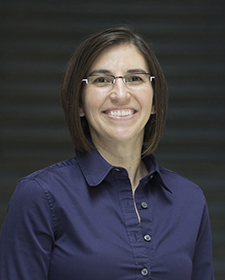Thursday, April 1, 2021
12:00pm-1:00pm
Registration for this event has now closed. If you missed the chance to register but would like to join us please email Lynsey Mellon at lynsey.mellon@utoronto.ca to receive the Zoom information.
Location: Virtual – join us on Zoom!
A Fast and Granular Agent-Based Simulation Model of COVID-19
Abstract: Most COVID-19 projections are based on compartmental models, which require only high-level information about a disease and population to make high-level predictions. For nuanced assessment of policy interventions to slow disease spread, agent-based simulation (ABS) models that treat individuals uniquely are more appropriate, but can be computationally unwieldy and even intractable. The Medical Operations Research Lab’s Pandemic Outbreak Planner (morPOP) is a computationally tractable, memory efficient ABS that considers the unique demographic, comorbidity, and behavior characteristics of each individual. It has been used to model H1N1 and pandemic influenza in the Greater Toronto Area (6 million agents) and is currently used to model COVID-19 in Newfoundland & Labrador (520,000 agents). Specific scenarios examined with morPOP include school mitigation measures and the effectiveness of NL’s travel ban, allowing public health officials to make evidence-based decisions about appropriate measures to enact.
Speaker: Dionne Aleman, Associate Professor, Industrial Engineering

Professor Dionne Aleman
Dionne Aleman is an Associate Professor in the Department of Mechanical & Industrial Engineering at the University of Toronto, and holds appointments in the UofT Institute for Health Policy, Management & Evaluation, the UofT Institute for Pandemics, and the UHN Techna Institute. She received her PhD in Industrial and Systems Engineering from the University of Florida (2007).
Dr. Aleman’s research focuses on the application of operations research to medical and healthcare systems to improve the quality, timeliness, and efficiency of care. This research includes using optimization, simulation, machine learning, and graph theory to design and validate radiation therapy treatment plans, to predict and mitigate the spread of pandemic diseases in urban populations, to improve hospital surgical scheduling, and to optimize organ transplant matches and multi-person chains. Dr. Aleman has held grants from NSERC, CFI, ORF, and NSF for her research. She is a two-term past President of the Canadian Operational Research Society (CORS). Within the Institute for Operations Research and Management Science (INFORMS), she currently serves on the Committee for Teaching and Learning, and has previously served as Chair of the Health Applications Society (HAS), President of the Public Sector OR Section (PSOR), President of the Junior Faculty Interest Group (JFIG), Chair of INFORM-ED, and TutORials co-chair. Dr. Aleman is also a Topical Editor for the Wiley Encyclopedia of Operations Research and Management Science, Associate Editor for IIE Transactions on Healthcare Systems Engineering, Associate Editor for OMEGA, Associate Editor for the International Journal of Biomedical Data Mining, and Editorial Board Member of Operations Research in Health Care.
Registration
Registrations are closed for this event.
